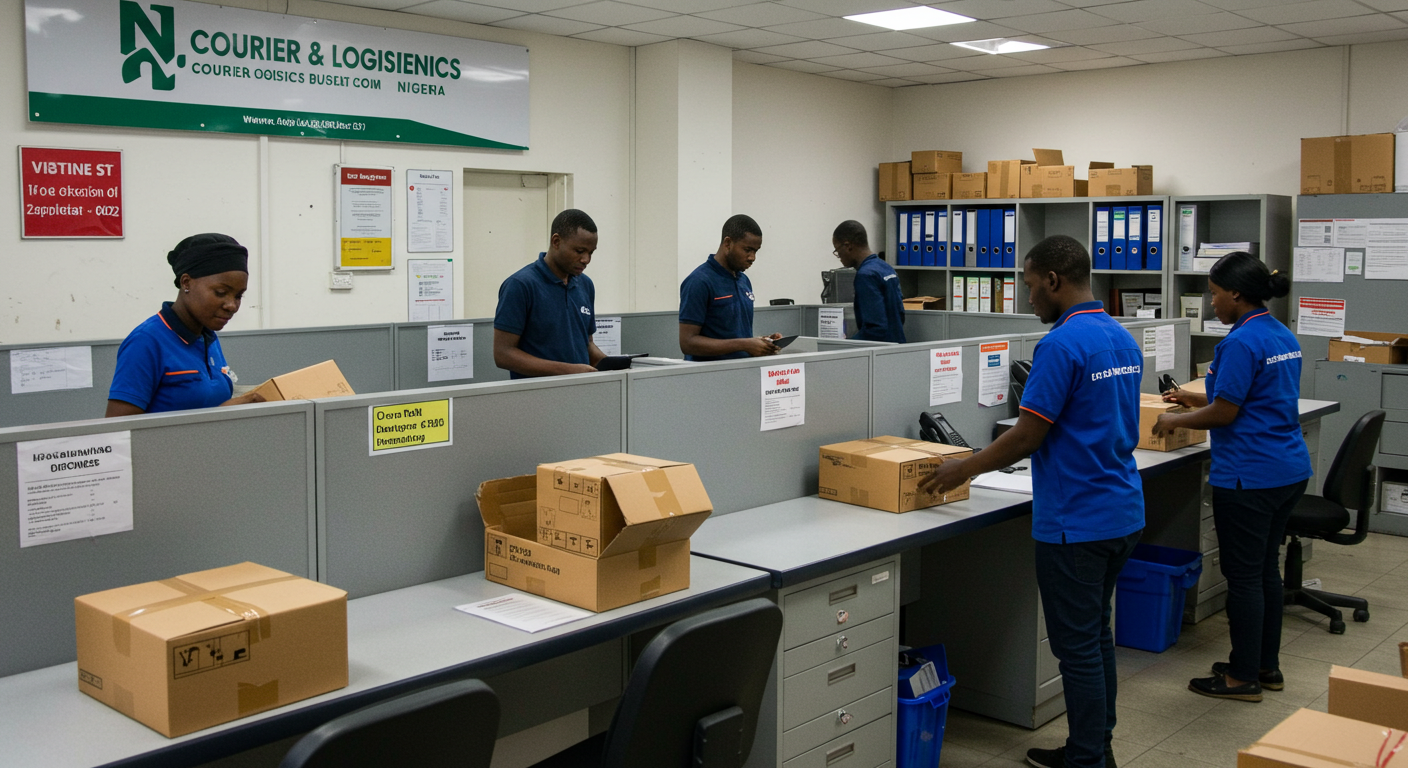The rise of e-commerce in Nigeria has created a surge in demand for efficient logistics services.
As a result, the courier business has experienced significant growth, presenting opportunities for entrepreneurs. However, navigating the regulatory requirements for setting up a logistics company can be challenging.
Historically, the Nigerian Postal Service (NIPOST) was the primary means of parcel delivery.
However, with the rapid growth of e-commerce, the need for faster and more reliable delivery services became apparent. This led to the emergence of private logistics companies, offering services such as courier, freight forwarding, and shipment. Today, logistics encompasses the procurement, maintenance, and transportation of materials, personnel, and facilities.
This article provides a comprehensive guide on setting up a logistics company in Nigeria, including the steps involved and the relevant licenses necessary for lawful operations. By following this guide, entrepreneurs can establish a compliant and successful logistics business, capitalizing on the growing demand for logistics services in Nigeria.
Table of contents
Stages of Courier Business Set Up
1. Registration with the Corporate Affairs Commission.
It is unlawful to carry on business in Nigeria without registering it. CAMA1 provides that a person or association of persons shall not carry on business in Nigeria as a company, limited liability partnership, limited partnership or under a business name without it being registered. Likewise,
the Nipost Act provides that no person shall operate a courier service in Nigeria, unless the person is registered as a company under CAMA.2 Where a courier company is to be registered as a private limited liability company, the minimum share capital requirement of N100,000 (One Hundred Thousand Naira) would apply.
However, where the courier/logistics company intends to carry out objects relating to freight forwarding, the authorized minimum share capital for freight and forwarding which is N5,000,000 (Five Million Naira) would apply.
Furthermore, where the proposed company is to carry out shipping activities as part of its business, the authorized share capital of N25,000,000 (Twenty-Five Million Naira) would apply. And where such company is to have a foreigner as one of its shareholders, the authorized share capital for foreign participation which is N100,000,000 (One Hundred Million Naira) would apply.
2. Registration with the Federal Inland Revenue Service.
Company Income Tax (CIT), Value Added Tax (VAT) and several other applicable taxes to companies are administered by the Federal Inland Revenue Service (FIRS). It is therefore devoid of error to say that a company’s registration with FIRS is part of its legal and regulatory framework for set up.
In practice, upon incorporation with CAC, a Tax Identification Number (TIN) is assigned to a company. But that is hardly enough, there is a requirement to register on the Tax ProMax.
Recently, the FIRS partnered with Nigerian banks to ensure that registration on tax pro max is a perquisite to setting up a corporate account.
3.Obtaining a Courier License from Nipost.
The Nigerian Postal Service is the regulatory body administering the logistics and courier business in Nigeria through the Nipost Act and the Courier and Logistics Service (Operations) Regulations.
All courier service companies are to be licensed before commencing operations. The Nipost Act provides that no person shall operate a courier service in Nigeria unless the person is licensed as a courier service operator, and where such unlicensed person or registered company has commenced operation, they must cease to operate.
3. Categories of Courier/Logistics License.
NIPOST issues various license to operators according to the extent of their operations. These licenses are categorized as follows:
a. International Courier License: This license allows operators to perform Courier and Logistics services across international borders. ( Sec 863(1), Sec 43(1), Sec 43(1b) & (3))
b. National Courier License: This license allows operators to perform Courier and Logistics services nationwide i.e., across all the states in Nigeria.
c. Regional Courier License: This license allows operators to perform Courier and Logistics services within a geo-political zone in Nigeria e.g., south-south geopolitical zone.
d. State/Special SME Courier Licence: This license allows operators to perform Courier and Logistics services within a particular state with not more than 5 motorcycles.
Risk of operating a logistics business in Nigeria without a license
Failure to obtain a courier license before operations does not only put the person or company in compliance risk, it also exposes them to business and legal risk.
- A courier service company does not have the right to sue for the recovery of any fees, commission, reward or gain for any services performed by the company if at the time of performing that service, the company was not a holder of a courier license.4 A company operating without a license is exposed to business risk with no backing or protection by the law.
- b. It is a criminal offence to operate a courier business without the appropriate license, and upon conviction such offender is liable to a fine of N5,000 (Five Thousand Naira).
Compliance with laws and regulations is the license to operate a business in Nigeria. Thus it is paramount to acquire the requisite license to operate freely within the bounds of the law.
Conclusion
Courier has become a business that’s bound to stay. It is a highly lucrative and regulated industry.
A Courier Service Company must be registered with the Corporate Affairs Commission, it must be registered with the Federal Inland Revenue Service and the appropriate Courier License must be obtained from the Nigerian Postal Service. It is illegal to operate a logistics business without proper licensing.
FAQs
The Nigerian Postal Service is the regulatory body administering the logistics and courier business in Nigeria through the Nipost Act and the Courier and Logistics Service (Operations) Regulations.
International Courier licence for operations across international borders. (
Sec 48 of Nipost Act)
National Courier licence for operations Nationwide.
Regional Courier license for operations within a geo-political zone.
State/Special SME Courier Licence for operations within a particular state
Why Choose Tcorporate?
Setting up a courier/logistics company requires expertise to navigate the legal and regulatory requirements effectively. With our years of experience in corporate law and compliance, we make the process seamless, so you can focus on managing your business.
Contact Us Today
Ready to set up a courier/logistics company in Nigeria? Let us handle the complexities while you reap the benefits of a well-structured organization.
Get in Touch
- 📞 Phone: 0908 011 9980, 0908 011 9975, 0810 347 2195
- 📧 Email: info@tcorporatelegaladvisory.com
- 🌐 Website: www.tcorporatelegaladvisory.com
Let Tcorporate guide you every step of the way. Your business growth begins here!
Written by Ogheneyoma Esther Ibuje LL.B, BL, ACIS
Legal Associate, Tcorporate Legal Advisory
- How to get a Meter Installer License from NERC | 2025 Guide for MSPs in Nigeria
- How to get a NIMASA Shipping License in Nigeria | Full Guide in 2025
- How to Register a Pharmaceutical Company in Nigeria | Requirements & Licensing
- Step-by-Step Process for Trademark Registration in Nigeria (2025 Guide)
- How to get SEC license for Digital Asset Companies in Nigeria (2025)





